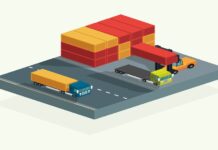Retail Logistics: A Growing Global Revenue Opportunity
Retail Logistics and the Global Revenue Boom
The field of retail logistics is undergoing fast-paced changes which determine business methods for product storage, transportation, and delivery. E-commerce expansion alongside technological developments and changing consumer demands are driving a major transformation within the industry. Retail logistics revenue will hit $557.1 billion worldwide by 2030 through consistent annual growth of 10.8%. The development creates fresh chances for companies trying to enhance their supply networks via creative means.
Why Retail Logistics is Growing
There are many reasons for this fast expansion. Mostly e-commerce’s growing popularity drives the growth of the industry. Online shopping has grown so rapidly that businesses must develop strategies to meet the growing consumer demand. Customers require rapid delivery times while also demanding simplified return processes and various shipping choices. Companies have been forced to review their supply chain structures due to this transition while needing to implement advanced logistics systems that are flexible to adapt.
Another key factor is technology. Automated systems combined with robotic technology and digital tracking solutions have improved the ways goods are stored and transported. Logistics companies improve operational efficiency and reduce costs by adopting smart warehouses and AI-controlled inventory systems together with autonomous delivery technologies. The ability of businesses to move products with increased speed and accuracy due to technological advancements leads to improved customer experiences.
The Power of Omnichannel Distribution
Retail extends beyond merely operating physical stores and online shops. Various businesses have adopted omnichannel distribution which enables them to sell products across several platforms including physical stores and digital channels like websites and mobile apps. This service lets customers purchase their products through one channel but collect them through a different channel such as buying through the web and collecting at a physical location.
Businesses require efficient logistics systems that can manage orders from multiple sources to provide effective omnichannel retail support. Businesses implement advanced tracking systems alongside warehouse automation and flexible delivery options to optimize their operations. Businesses implementing omnichannel logistics strategies expand their customer base and boost their worldwide revenue which enhances their competitiveness in the rapidly evolving market.
Retail Logistics Leaders and Market Trends
Retail logistics remains highly competitive because companies constantly invest in innovative strategies to maintain their market position. Businesses that concentrate on technological improvements, network delivery expansions, and logistics cost optimization lead the market. Businesses which master the transition to these new market trends will prosper in future years.
The push for faster deliveries stands out as one of the main trends in the industry. Companies are designing methods to minimize delivery times through the establishment of smaller warehouses carefully positioned near key locations. Micro-fulfillment centers enable companies to position products near customers which accelerates order fulfillment and decreases last-mile delivery periods.
Another major trend is personalized logistics solutions. Through data analytics and AI retailers can anticipate what customers want which helps them to manage their supply chains better while minimizing waste. Through smart tracking and predictive analytics businesses can forecast demand and modify inventory levels to prevent stock shortages and delivery delays.
The Role of Technology in Retail Logistics
Technological progress leads to transformation within the retail logistics sector. Integration of AI-based warehouse management systems with real-time shipment tracking into digital toolsets enables organizations to boost their operational efficiency. Technological breakthroughs function as primary forces driving significant changes throughout the industry transformation process.
Retailers utilize artificial intelligence and machine learning technologies to forecast demand patterns and automate warehouse operations while maintaining optimal inventory levels.
The use of robotics in product handling accelerates the processes of picking and packing and sorting which minimizes human mistakes while simultaneously boosting productivity.
Customers receive live delivery status through digital tracking systems which strengthen both transparency and satisfaction levels.
Businesses can manage their full supply chain through one digital dashboard provided by cloud-based logistics platforms which improves coordination between suppliers and delivery partners as well as warehouses.
Last-Mile Delivery: The Future of Retail Logistics
Customers today expect their orders to reach them at unprecedented speeds. The concluding stage of product delivery represents the most costly and complicated part of retail logistics operations. Businesses are testing new approaches to enhance the efficiency of last-mile delivery operations.
- Local distribution hubs and micro-fulfillment centers store products nearer to customers which helps to decrease delivery times.
- Gig workers together with local drivers assist with short-distance deliveries in crowdsourced delivery models.
- Businesses test drones and autonomous delivery vehicles to achieve quicker deliveries with lower operational costs.
Efficient last-mile logistics enable businesses to achieve faster deliveries which leads to more satisfied customers and increased worldwide revenues. Retail market leaders will emerge from companies that effectively manage last-mile logistics operations.
Sustainability in Retail Logistics
The expansion of global logistics necessitates the development of sustainable solutions. Businesses strive to decrease their environmental footprint without increasing their operational expenses. Key sustainable retail logistics initiatives consist of:
- Delivery vehicles that use electric and hybrid power systems help lower carbon emissions.
- Reusable and biodegradable packaging to minimize waste.
- Route optimization software helps decrease fuel usage while enhancing delivery performance.
- Green warehouses powered by renewable energy sources.
Sustainability initiatives enable businesses to lower expenses while meeting client demands and staying within environmental laws. The logistics industry will keep moving toward greener operations as more companies adopt sustainable practices.
Retail Logistics and Future Growth
The retail logistics sector will experience major growth in the near future because the market expands at a rate of 10.8% annually. The entry of new businesses into the market is spurring innovation through increased competition. Businesses which make investments in advanced logistics solutions will experience a boost in global revenue alongside enhanced customer satisfaction.
- Businesses will concentrate on expanding warehouse automation to speed up order processing as retail logistics evolves.
- Businesses will enhance their warehouse operations through automated systems to accelerate order fulfillment.
- Enhancing tracking technology for real-time shipment updates.
- Businesses should develop environmentally friendly delivery solutions to achieve sustainability targets.
- Businesses are using artificial intelligence alongside machine learning to enhance supply chain operations.
Modern trade is mostly based on retail logistics as it fast and effectively delivers items to consumers. As the need for consistent and reasonably priced delivery options rises, companies must modify their activities to fit changing market needs. Businesses adopting modern technologies and sustainable methods will pioneer the development of global retail logistics for the future.

























